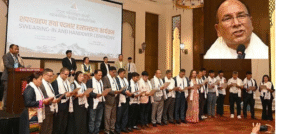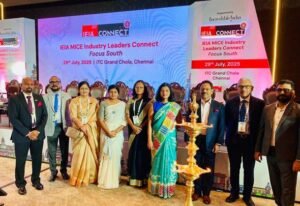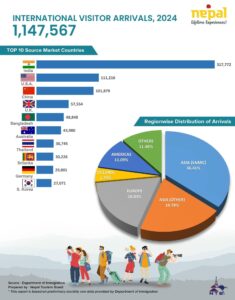Belt and Road Initiative – BRI conference on prosperity of South Asia concludes
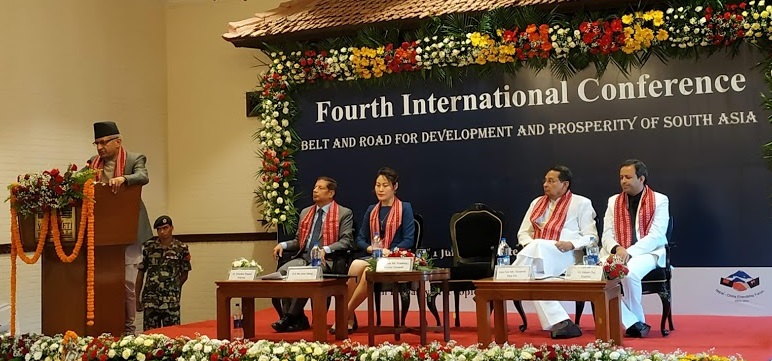
By Ramesh Tiwari —-
Kathmandu: The fourth international conference on “Belt and Road for development and prosperity of South Asia “ has underlined the need for strengthening cooperation between China and South Asian countries for economic transformation of the region.
Delegates from China, India, Bangladesh, Laos, Pakistan, Philippines, Malaysia and Nepal discussed on various issues of China’s Belt and Road Initiative at the conference organized by Nepal – China Friendship Forum (NCFF) on June 20-21.

Addressing the conference titled “Belt and Road for development and prosperity of South Asia” in Kathmandu, Nepal’s Minister for Foreign Affairs Pradeep Kumar Gyawali said that BRI offered tremendous opportunities of economic transformation to the South Asian countries including Nepal.
“The Belt and Road Initiative is an inclusive concept which aims to promote shared benefits, good governance, enhanced railroad connectivity and sovereign decision-making of the relevant countries,” Gyawali said.
He emphasized on infrastructure development, connectivity and technology transfer for prosperity of South Asia.

Chinese Ambassador to Nepal Hou Yanqi stressed on meaningful cooperation with South Asian countries under the BRI framework.
She highlighted on BRI projects including construction of China-Pakistan Economic Corridor (CPEC), cross-sea bridge in the Maldives, Hambantota port in Sri Lanka among others.
“Belt and Road Initiative is open, inclusive and transparent and does not include any hidden geopolitical agenda,” Yanqi said, appreciating Nepal for its support and cooperation to the mega project.
“BRI follows the principle of mutual benefit, shared interests and win-win cooperation. No countries have fallen into debt trap since China launched the BRI in 2013,” she said.
Member of Parliament and Chairman of standing committee on Ministry of Information of Bangladesh Hasanul Haq Inu , in his key note speech, said ,” BRI is now a global initiative to construct a new international order based on enhancing development and ending poverty across the south within the framework of a more equitable world order.”.
Former Vice-Chairman of the National Planning Commission Dr. Shankar Sharma urged China to extend support in connectivity and infrastructure development in South Asia.
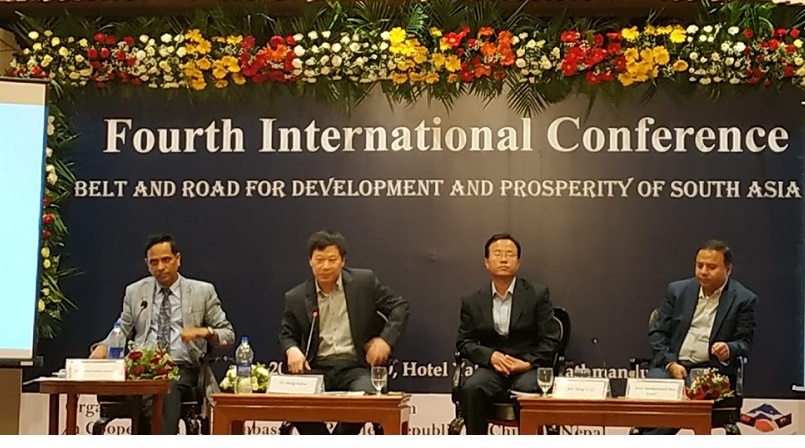
Prof. Atiur Rahman of Bangladesh, M.K. Bhadrakumar of India, Prof. Zhang Jiadong of China and Dr. Surya Raj Acharya highlighted on different aspects of Belt and road Initiatives in a panel discussion of the conference.
Similarly, Ms. Darlene V. Estrada of Philippines, Dr. Nur Shahadah Jamil of Malaysia, Vanxay Sayavong of Laos, Prof. Di Fangyao of China, Dr. Hina Aslam of Pakistan, Dr. Mahfuz Kabir of Bangladesh, Dr. Wang Yuzhu of China, Yang Yabo of China and Prof. M. Abu Eusuf shed light on BRI projects in the plenary sessions of the two-day conference.
The sessions on BRI lessons from ASEAN, trade and connectivity in South Asia and trans-Himalayan cooperation for shared prosperity were chaired by Gyan Chandra Acharya, Dr. Posh Raj Pandey , Madhu Kumar Marasini and Dr. Krishna Prasad Oli.
President of Nepal – China Friendship Forum (NCFF) Dr. Kalyan Raj Sharma said that Belt and Road Initiative intends for mutual cooperation in connectivity, infrastructure development, unimpeded trade, financial integration and closer people-to-people ties between the participating countries.
“BRI has created opportunities for economic transformation of South Asian countries upholding the principles of mutual support and win-win cooperation,” Sharma said.
Launched by Chinese President Xi Jinping in 2013, BRI is a mega project to connect Asia with Africa and Europe via land and maritime networks for regional integration and economic transformation.
So far, 131 countries and 30 international organizations have joined the initiative, through which China has made investments of more than $90 billion to these countries and regions.
June 21, 2019
Photos : Travel Biz News


